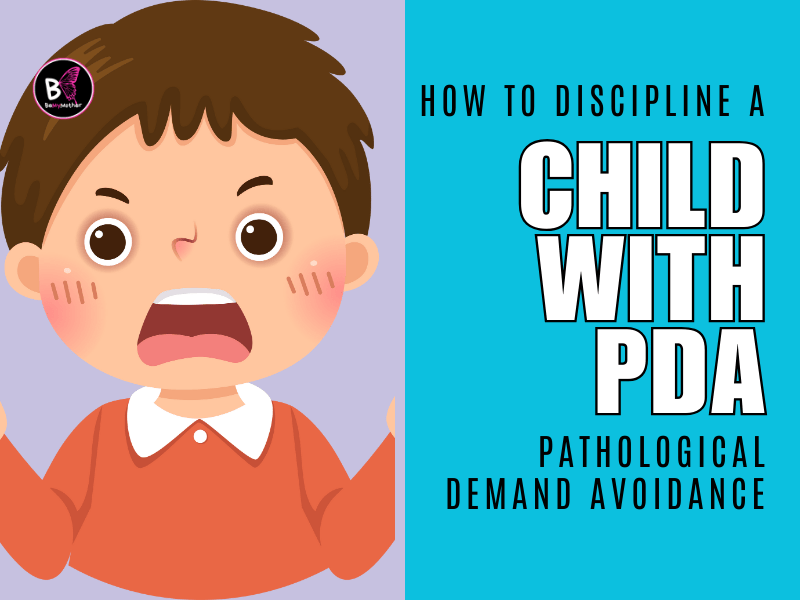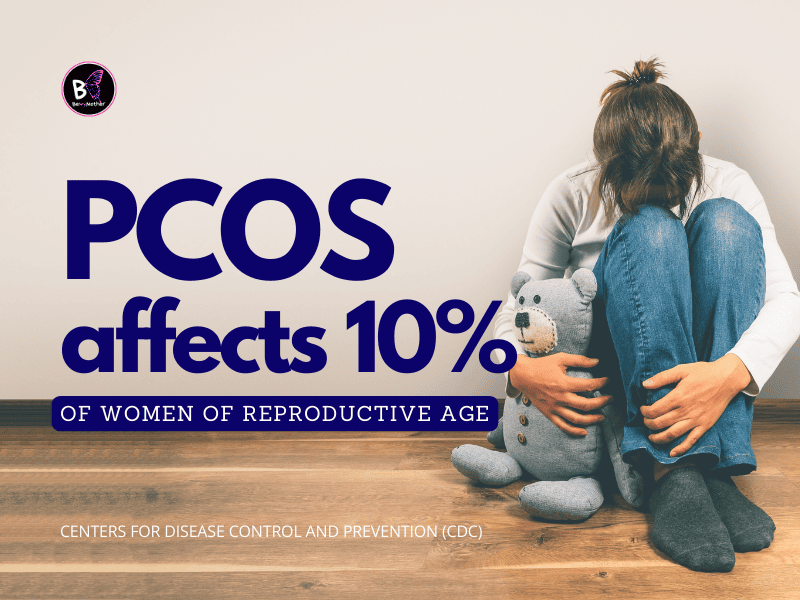Miscarriage is an incredibly tough experience that leaves many of us searching for answers and comfort. For those turning to Buddhist teachings, finding out what Buddhists say about miscarriage can really help provide some solace.
Buddhism, emphasizing compassion, mindfulness, and acceptance, offers a gentle way to navigate the heart-wrenching feelings of loss and grief. It’s all about finding peace in the midst of pain and learning to heal with a sense of serenity and understanding.
1. What Do Buddhists Say About Miscarriage?
In Buddhism, the concept of karma is fundamental. Karma refers to the actions of an individual and their subsequent consequences, both in this life and future lives. One perspective on why miscarriages happen in Buddhism is related to the karma of both the parents and the unborn child. The suffering experienced through miscarriage may be seen as a result of past karma, which influences present life conditions.
Buddhism emphasizes the sanctity of life from the moment of conception. Traditional Buddhist ethics consider miscarriage as the loss of a life, akin to abortion, while acknowledging that such events occur within the interplay of karma and natural causes. Central to Buddhist teachings is the principle of non-violence (ahimsa) and reverence for all forms of life.
🔍 Insight: Buddhism emphasizes the sanctity of life from the moment of conception. Traditional Buddhist ethics consider abortion, and by extension miscarriage, as involving the loss of life. This perspective is rooted in the principle of non-violence (ahimsa) and the belief that life begins at conception.
Source: BBC
2. Miscarriage and the Four Noble Truths: A Path to Understanding Loss
The Four Noble Truths form the foundation of Buddhist philosophy and provide a lens for understanding the pain of miscarriage:
- The Truth of Suffering (dukkha): Suffering is an inherent part of life.
- The Origin of Suffering (samudaya): Attachment and desire lead to suffering.
- The Cessation of Suffering (nirodha): Letting go of attachments can end suffering.
- The Path Leading to the Cessation of Suffering (magga): Following the Eightfold Path leads to peace.
Through this framework, individuals can come to terms with their grief, understanding that suffering, while painful, is a universal experience.
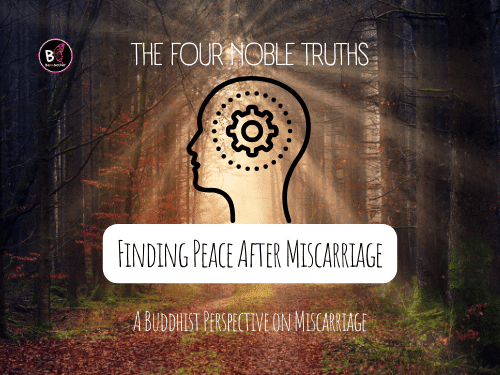
🔍 Insight: The Four Noble Truths guide individuals in understanding that suffering is an inherent part of life, arising from attachment and desire. By recognizing and accepting suffering, such as the grief from miscarriage, one can follow the Eightfold Path to find peace and alleviate pain.
Source: BBC
💡 Related Article: Looking for practical steps to restore balance after loss? Read How to Regulate Hormones After Miscarriage: 9 Proven Steps to Recovery for essential guidance toward physical and emotional healing.
3. The Role of Compassion and Mindfulness After Miscarriage
In Buddhism, compassion (karuna) and mindfulness are essential for healing after loss. Mindfulness involves being fully present with one’s emotions, acknowledging grief without judgment. Compassion encourages treating oneself with the same kindness extended to others, alleviating guilt and self-blame.
Mindfulness Practices for Grief:
- Breathing Meditation (Anapanasati): Concentrate on the natural rhythm of your breath. Sit quietly, inhaling and exhaling slowly, allowing your mind to settle and focus on the present moment.
- Loving-Kindness (Metta): Repeat affirmations of love and kindness toward yourself and your lost child.
- Mindful Walking (Kinhin): Walk slowly and mindfully, paying attention to the sensations of each step. Feel the connection between your feet and the ground. focusing on the present moment.
- Supportive Community (Sangha): Engage with a supportive Buddhist community or spiritual teacher.
- Mindfulness Apps: Use apps like Headspace, Calm, or Insight Timer for guided meditations tailored to grief and emotional healing.
🔍 Insight: Buddhist practices like mindfulness and self-compassion are vital for emotional healing after a miscarriage. Mindfulness involves being present with one’s emotions without judgment, allowing individuals to process grief authentically. Self-compassion encourages treating oneself with the same kindness extended to others, which can alleviate the self-blame or guilt that may accompany loss.
Source: Lynn Rossy
4. Miscarriage and the Concept of Impermanence in Buddhism
The Buddhist teaching of impermanence (anicca) reminds us that all things, including life itself, are in a constant state of change. This principle encourages acceptance of loss as part of life’s natural cycle.
| Buddhist Teaching | Explanation |
| Impermanence (anicca) | Everything is transient and subject to change. Loss is a natural part of existence. |
| Letting Go | Releasing attachment eases suffering and fosters peace. |
🔍 Insight: Impermanence (anicca) is a central concept in Buddhism, teaching that all conditioned things are constantly in flux. This understanding helps individuals accept that loss, including miscarriage, is a natural part of existence. One can learn to let go of attachments and find peace amidst life’s inevitable changes by embracing impermanence.
Source: Jack Kornfield
5. Spiritual Rituals for Honoring a Miscarriage in Buddhism
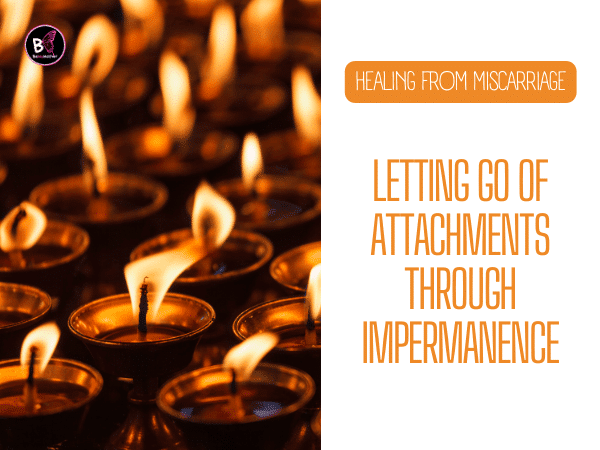
Buddhism encourages honoring loss through rituals that promote healing and peace. These acts can provide a tangible way to process grief and connect spiritually.
Buddhist-Inspired Rituals:
- Lighting a Candle or Incense: Symbolizes guiding the soul toward peace.
- Chanting Sutras: Reciting texts like the Heart Sutra or Metta Sutta can provide comfort.
- Dedicating Merit: Perform good deeds or offerings in memory of the lost child.
Such practices offer a sense of closure and reinforce the interconnectedness of all beings.
💡 Related Article: Concerned about potential complications after miscarriage? Discover the connection in Can Miscarriage Cause UTI? 8 Eye-Opening Facts About Miscarriage and UTIs You Can’t Ignore and learn how to protect your health.
6. What Does Buddhism Say About Pregnancy and Fertility?
Buddhist teachings deeply value the nurturing of life and highlight the interconnectedness of all living beings. Pregnancy is considered a sacred opportunity to bring a new life into the world, embodying hope and continuity. Fertility, often symbolized by the lotus flower, carries profound meaning, representing purity, creation, and spiritual growth. Rooted in compassion, Buddhism encourages mindful and ethical efforts to create life. Modern fertility treatments, such as IVF, are generally considered acceptable, as they align with the principle of compassion when approached within ethical guidelines, reflecting a harmonious balance between spiritual teachings and contemporary medical advancements.
💡 Related Article: Navigating pregnancy with PCOS? Discover proactive advice in How to Avoid a Miscarriage with PCOS: 10 Proven Strategies for a Healthy Pregnancy to Support a Safe and Healthy Journey.
7. Finding Comfort in Buddhist Teachings After Miscarriage
Listen To This When You Are Feeling Down | Buddhism In English
Buddhist teachings like loving-kindness (metta) and interconnectedness offer profound comfort during grief. Metta encourages sending love and peace to oneself and others, fostering emotional resilience.
Buddhist Texts for Healing:
- The Dhammapada provides wisdom on navigating suffering.
- Stories of the Buddha’s compassion inspire hope and understanding.
These teachings remind individuals that grief is part of the human experience and peace is attainable through spiritual practice.
8. Understanding the Fate of Miscarriage Through Buddhist Beliefs
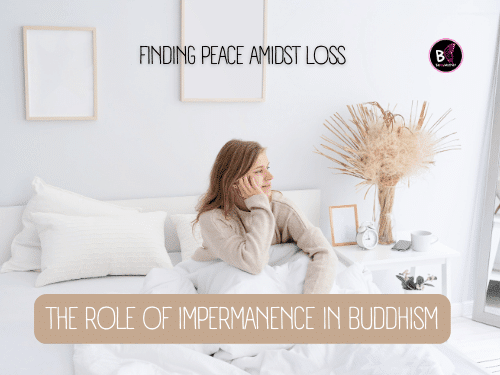
Buddhism says that the soul or consciousness (vinnana) is subject to the cycle of rebirth (samsara). In the case of miscarriage, the consciousness continues its journey based on its karmic conditions.
| Concept | Explanation |
| Rebirth (Samsara) | Consciousness is reborn according to karma. |
| Karma | Actions influence the next life. |
This belief provides solace, emphasizing that life is eternal and interconnected till the Nirwana.
FAQ Section: Addressing Common Myths and Questions
- What do Buddhists say about miscarriage?
Buddhists view miscarriage through the lens of karma, impermanence, and interconnectedness. It’s seen as a natural part of life’s cycle, and mindfulness and compassion are emphasized for healing. - What is a spiritual ritual for miscarriage in Buddhism?
Rituals may include chanting sutras, lighting incense or candles, and dedicating merit to the lost life. These acts honor the loss and promote peace. - How does Buddhism explain the root cause of miscarriage?
Buddhism attributes life events, including miscarriage, to the interplay of karma and natural causes, emphasizing the impermanence of all things. - What is the Buddhist symbol for fertility?
The lotus flower is often associated with fertility and creation in Buddhism, symbolizing purity and spiritual growth. - Can mindfulness help with grief after a miscarriage?
Yes, mindfulness practices like meditation and breathing exercises can help individuals process grief and find emotional balance. - What does Buddhism say about the fate of miscarried souls?
Buddhism teaches that the consciousness of the miscarried may continue through the cycle of rebirth, depending on their karmic journey. - How can I honor my miscarriage in a Buddhist way?
You can honor your loss through offerings, chanting, dedicating merit, or creating a peaceful, mindful space of remembrance. - Does Buddhism support IVF or fertility treatments?
Buddhism generally supports efforts to create life compassionately, and IVF is not viewed as morally wrong in most traditions.
Conclusion
Buddhism has profound wisdom and compassion to share with those suffering the loss of miscarriage. The doctrines of impermanence, karma, and loving-kindness provide a framework for understanding and accepting loss. In the acceptance of ritual, mindfulness, and interconnectedness, healing and peace are available in the midst of suffering. Reflecting on what Buddhists say about miscarriage highlights spiritual resources available to support those on a journey toward resilience and peace.
💡 Related Article: Seeking spiritual understanding of miscarriage through scripture? Explore Why Do Miscarriages Happen Bible? 7 Profound Biblical Insights for Understanding and Comfort to find answers and solace.


